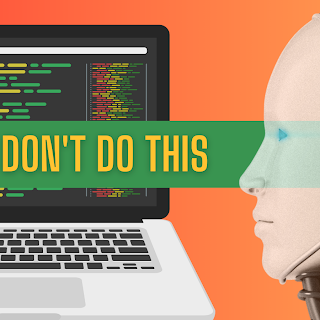Loops
Think of loops like singing the same song again and again. When you sing your favourite song continuously, you are kind of doing a loop. You're repeating the same part of the song. In the world of programming, it's just like that. Let's say we want to count from 1 to 10. We could write each number out one by one, or we could use a loop to say, "Start at 1, and add one until you get to 10." Loops allow us to repeat certain actions multiple times, which is extremely useful in programming. There are two main types of loops:
For loops: These are used when you know how many times you want to loop. For example, if you want to print "Hello, World!" five times, you could use For loop.
While loops: These are used when you want to keep looping as long as a certain condition is true. For example, you might want to keep doing something until some conditions are met.
Conditional Statements
Conditional Statements are like choices. Let's say your mother tells you, "If it's raining outside, then take your umbrella. Otherwise, if it's just cloudy, take your hat. If it's sunny, put on sunscreen." These choices depend on what the weather is like. Your mother gives you different instructions for different types of weather.
In programming, we do the same thing! We give the computer different instructions based on different situations. This is what we call 'if', 'else if', and 'else' statements.
'If' is like saying "If it's raining, take an umbrella."
'Else if' is like saying "Otherwise, if it's cloudy, take a hat."
'Else' is like saying "If it's not any of those things, so it must be sunny, put on sunscreen."
Conditional statements allow programs to make decisions. The primary conditional statement is an 'if' statement. This executes a block of code if a specified condition is true. Often, we want to check multiple conditions and do different things depending on them. That's where 'else' and 'elif' (else if) come in.
By combining loops and conditional statements, you can control your program's flow effectively, allowing it to perform complex tasks and make decisions based on conditions. By using these, programmers instruct computers how to do something many times, and how to make choices based on different situations. It is just like singing songs and deciding what to wear based on the weather!
'If' is like saying "If it's raining, take an umbrella."
'Else if' is like saying "Otherwise, if it's cloudy, take a hat."
'Else' is like saying "If it's not any of those things, so it must be sunny, put on sunscreen."




0 Comments